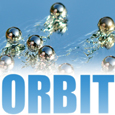Reading an article: Difference between revisions
No edit summary |
SimonKnight (talk | contribs) (added rationale and additional resources. Moved 'below the table' content into the table) |
||
| Line 6: | Line 6: | ||
|age= | |age= | ||
|title= Reading an article | |title= Reading an article | ||
|content= | |content=Using articles (see links below), encourage students to move beyond textbook learning, to think about science communication in various contexts, and expand their own knowledge. | ||
|format= | |format= | ||
|strategy= | |strategy= | ||
Articles obtained could be used in various different ways. Encouraging reading articles offers opportunities to: | |||
* discuss scientific communication - particularly in popular format, use of images, article structure, importance of explaining terms and so on. | |||
* compare and contrast articles on the same topic - the MMR jab, and climate change offer good examples here where the popular media, science writing for the lay public (e.g. from bloggers and NHS 'behind the headlines'), and academic work has been written in different ways, with varying messages. | |||
* Instigate some discussion of peer review, and the process of publishing in science, including the structure of academic articles | |||
* Encourage students to think about writing their own articles on science | |||
|additional resources= | |additional resources= | ||
BlueSci (http://www.bluesci.org) is a Creative Common licensed science magazine produced by students at the University of Cambridge. Choose an article from the magazine for discussion in class. | |||
The NHS Choices 'Behind the Headlines' [http://www.nhs.uk/news/Pages/Howtoreadarticlesabouthealthandhealthcare.aspx site] offers a balanced look at media coverage of health stories - these could be contrasted. | |||
For more advanced readers, [http://researchblogging.org/ Research Blogging] provides a directory of blogs based on research articles, and publishers such as [http://www.plosone.org/home.action PLoS ONE] offer Open Access journals for various scientific fields. | |||
Any other suitable articles. | |||
|useful information= | |useful information= | ||
|related resources= | |related resources= | ||
| Line 15: | Line 28: | ||
|resources= | |resources= | ||
}} | }} | ||
[[Category:Secondary]] | [[Category:Secondary]] | ||
[[Category:Science]] | [[Category:Science]] | ||
[[Category:Maths]] | [[Category:Maths]] | ||
Revision as of 14:00, 17 July 2012
Lesson idea. Using articles (see links below), encourage students to move beyond textbook learning, to think about science communication in various contexts, and expand their own knowledge.
Teaching approach. The resource relates to the importance of:
- Scientific literacy(topic).
- Science citizenship(topic) - understanding science in its context.
- Literacy - understanding the role of different media in dissemination.
- Scientific understanding of particular concepts chosen.
- scientific language(ta).
- scientific method(ta).
It can be delivered through a combination of homework(ta) (perhaps to find an interesting article), group work(ta) to explore various articles (perhaps in a carousel), and/or use of ICT(i) including PowerPoint files to encourage students to present an area they are interested in. (edit)
| Resource details | |
| Title | Reading an article |
| Topic | [[Topics/Scientific literacy|Scientific literacy]], [[Topics/Science citizenship|Science citizenship]], [[Topics/Reading skills|Reading skills]] |
| Teaching approach | [[Teaching Approaches/Homework|Homework]], [[Teaching Approaches/Language|Language]], [[Teaching Approaches/Group work|Group work]], [[Teaching Approaches/Scientific method|Scientific method]]
|
| Subject | [[Resources/Literacy|Literacy]], [[Resources/Secondary|Secondary]], [[Resources/Science|Science]] |
| Age of students / grade | [[Resources/Secondary|Secondary]], [[Resources/KS4|KS4]], [[Resources/KS3|KS3]] |
| Additional Resources/material needed | BlueSci (http://www.bluesci.org) is a Creative Common licensed science magazine produced by students at the University of Cambridge. Choose an article from the magazine for discussion in class. The NHS Choices 'Behind the Headlines' site offers a balanced look at media coverage of health stories - these could be contrasted. For more advanced readers, Research Blogging provides a directory of blogs based on research articles, and publishers such as PLoS ONE offer Open Access journals for various scientific fields. Any other suitable articles.
|

